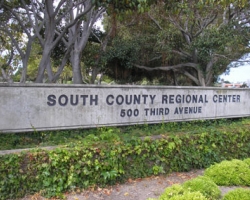If I had erectile dysfunction I could see how I might get depressed. After all, once a man’s lost his sexual prowess, what is he good for other than moving heavy furniture and smashing bugs?
Sure, avoiding a diminished manhood is as easy as popping a little blue pill called Viagra, or its lesser known but equally invigorating cousin Cialis. But if I’m one of the poor saps who falls victim to the side effects -which could include nausea, dizziness, stuffy nose, upset stomach, diarrhea, chest pain or loss of vision – I don’t know that I’d be able to enjoy sex if every five minutes I’m running to the bathroom or worried that my heart’s going to explode.
Of course another way of coping with depression of any kind would be to get a doctor to prescribe me happy pills. However, anti-depressants like Xanax and Cymbalta are reportedly not only capable of elevating my mood but they may also cause nausea, headache, drowsiness, dizziness, constipation, tremors, gas, vomiting, decreased sex drive, hallucinations, seizures and/or thoughts of suicide.
While some people may get a charge out of walking around feeling sick, bloated and gassy, I don’t know that I’d want to be so happy that I could die.
But it’s not just the penis pills and mind benders that come with all sorts of extras.
Ask anyone who takes medication to regulate blood pressure, blood sugar, or another chronic ailment and they’ll probably offer examples of how the cure is worse than the disease. Yet, that doesn’t stop us.
Time and again we run for the shelter of “mother’s little helper.” The Centers for Disease Control reports that 47 percent of the American population has used at least one prescription drug in the last month. Or, in other words, half of us are pill-popping dopers.
And the irony must be frustrating for people like Daniel Green.
Green has become a regular at Chula Vista City Council meetings as he tries to persuade elected officials that the city should grant business licenses to medical marijuana dispensaries.
In the state of California, the use of medical marijuana is legal. It’s the distribution that has created headaches for entrepreneurs like Green and the people who want to patronize him.
When, a little over a year ago, Green tried to obtain a business license to sell medical cannabis he was denied. The City Council subsequently declared (and extended) a moratorium on dispensaries. But Green hasn’t let the issue go up in smoke, speaking out weekly during the public comments portion of the council meetings.
His immediate goal, he says, is to raise awareness and create a dialogue about the benefits of legal distribution centers.
As it stands now, he says, if someone wants to buy pot to help with their glaucoma they either have to travel to a San Diego dispensary – where money is taken out of the local economy – or they have to buy from an unregulated street dealer. Either option doesn’t make sense to Green.
But sense doesn’t seem to matter in Green’s muddy uphill battle. Because while some prescription pills may have a long list of adverse side effects that can make a patient feel worse for getting better, one of the great advantages they have, in addition to their legality, is the deep pockets of their parent pharmaceutical companies. Pockets that have millions of dollars to be spent in lobbying state and federal officials.
As the issue of medical marijuana dispensaries becomes a bigger political issue, hopefully the dialogue that Green has initiated locally continues.

